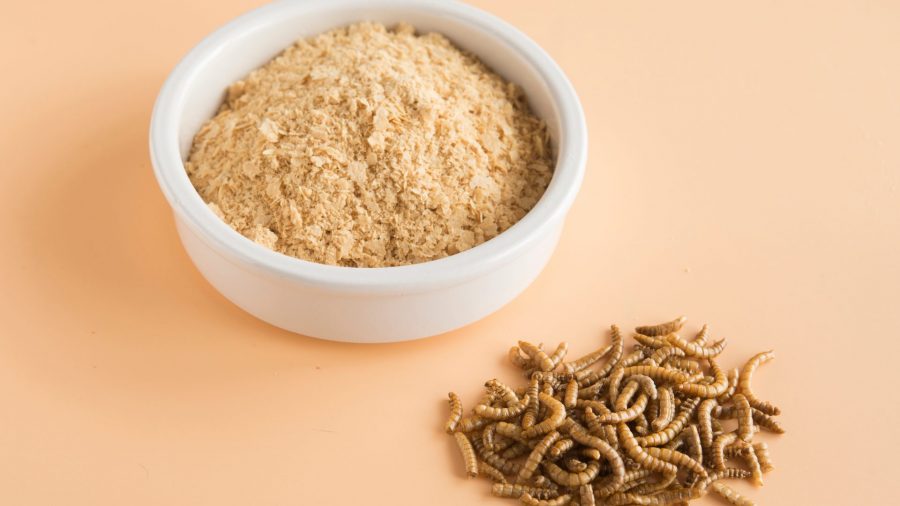One of the biggest stories in food manufacturing in 2022 was the ability of producers to take pricing. Despite price increases usually in the range of 15% year-over-year (if not higher), major manufacturers were able to maintain relatively stable volumes and even improve their gross profit margins.
That strength was reflected in stock prices across the sector. As we’ve noted before and including dividends, the five biggest manufacturers (outperformed the market by about 40 percentage points in 2022. That outperformance ended at the beginning of this year but has resumed in recent weeks as broader market jitters (now fueled by bank runs) have returned.
Given that those manufacturers were raising prices 15% in large part because their costs were going up 15%, one might expect that their suppliers in turn have had strong results. The news for ingredient suppliers has been mixed, however, in terms of both their businesses and their stock prices.
The three major players — Ingredion, International Flavors & Fragrances, and Archer Daniels Midland — have posted sharply divergent performances. In 2022, ADM was the big winner with total returns of 40%, making it one of the best non-energy stocks in the Standard & Poor’s 500. Ingredion returned a little over 4% — no small feat in a down market, but a return that lagged those of many of its customers. IFF, meanwhile, stumbled to a 30% decline, while returning only about 2% in dividends.
2023 has been much uglier, however. INGR has dropped 3%, ADM has fallen 16%, and IFF has plunged 20%. One key reason for the weakness is that profit margins for the group are showing some signs of strain.
It’s not a coincidence that Ingredion has been the best performer in the group. Over the course of 2022, its margins steadily improved. Management has cited a lag in the company’s ability to re-price products as the key cause. Gross margins declined 1.7 percentage points year-over-year in the first half of 2022 — but increased 1.2 points in the fourth quarter.
But this year, even Ingredion is projecting some margin weakness as its own input costs outpace pricing. That’s despite the fact that, as management has noted, high-capacity utilization across the industry limits any real competition on price.
IFF’s plunge has been caused almost solely by a 19% one-day decline after the fourth quarter earnings report last month. What spooked investors was soft profit guidance for this year — a forecast revised downward just two months after it originally was issued.
In other words, its outlook deteriorated in a hurry — and it’s not like business was booming to begin with. IFF’s Nourish segment, which serves the food industry, already had been hit by margin pressure in the second half of 2022. Notably, management attributed expected 2023 weakness in that business to inventory “destocking” among customers. Clearly those customers are expecting the stable volumes of 2022 to start to turn south in 2023.
ADM, admittedly, has spoken more positively about its Nutrition and Global Carbohydrates businesses than did peers. But even its own strong performance in 2022 came alongside some level of profit margin weakness.
To be fair, these are global companies that serve multiple end markets, and so the performance of the food businesses is not the only driver of their share prices. ADM shares, for instance, are being pressured by the impact of commodity prices on its Agricultural Solutions segment. IFF has a debt-heavy balance sheet and has struggled on the fragrance side of the business.
But looking solely at the specialized food products from these ingredient suppliers, and focusing solely on North America, there are some signs of strain. And there’s a sense that ingredient suppliers might be the canary in the coal mine.
It’s clear that their customers — food manufacturers — are starting to push back. They’re doing so because their customer — the end consumer — is starting to push back. After 2022, that’s no surprise.
Vince Martin is an analyst and author whose work has appeared on multiple financial industry websites. He’s the lead writer at (www.overlookedalpha.com) Overlooked Alpha, which offers market-wide and single-stock analysis every week.
The Food Institute Podcast
Click the play button above to listen to the episode.
How did a small sub shop from Point Pleasant, New Jersey, grow into a 2,400-store operation across 50 states? Jersey Mike’s Franchise Systems Inc. senior vice president Caroline Jones shares the company’s evolution after deciding to franchise the concept in 1987. Additionally, Jones shares stories of growing up in the business, and how the company’s philanthropic efforts help to endear franchise locations to each community they serve.












